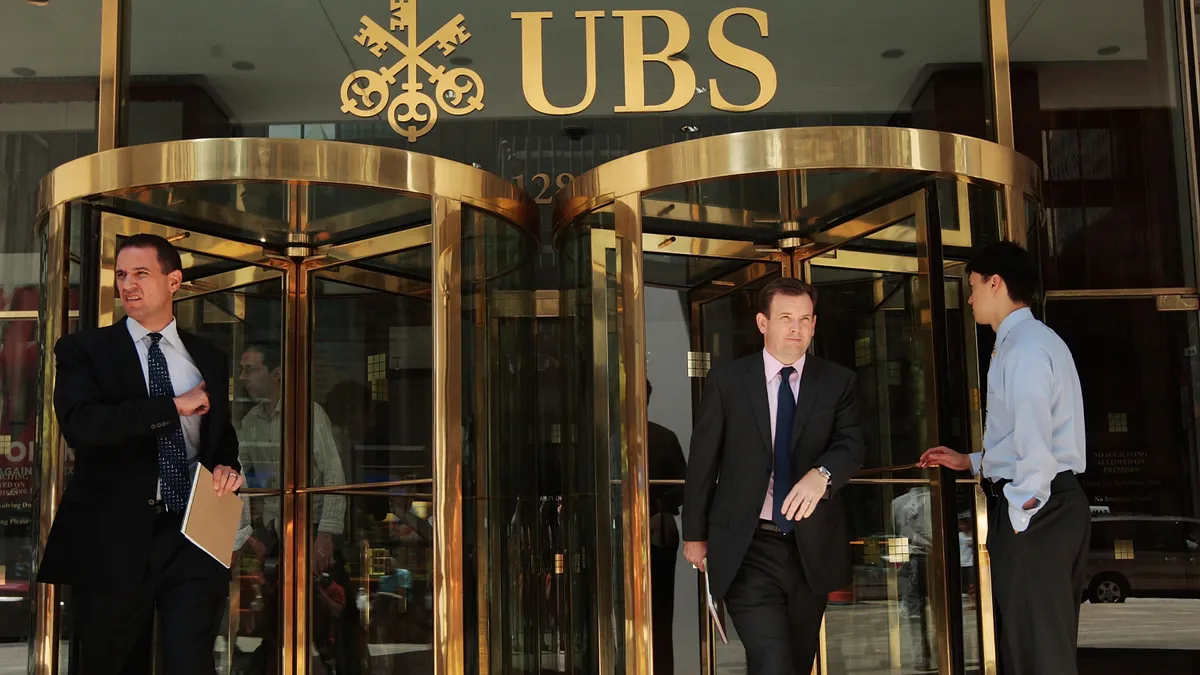Dive Brief:
- UBS and robo-adviser Wealthfront terminated a $1.4 billion plan to fuse their businesses, the Swiss bank announced Friday.
- UBS instead gave Wealthfront $69.7 million in financing, and the companies are “continuing to explore ways to work together in a partnership,” the robo-adviser’s CEO, David Fortunato, wrote Friday in a blog post.
- The companies did not provide a reason behind the disintegration of the deal, announced in January. The transaction, slated to close by December, would have added more than $27 billion in assets under management to UBS’s portfolio, and given the Swiss bank access to Wealthfront’s 470,000 clients — many of whom are in the coveted millennial and Gen Z demographics.
Dive Insight:
Friday’s announcement marks the collapse of a major component of UBS CEO Ralph Hamers’ strategy to make inroads in the U.S., particularly targeting customers with assets between $250,000 and $2 million — less wealthy than the bank’s typical clientele, which includes more than half the world’s billionaires, according to Bloomberg.
UBS teased in October 2021 that it would launch a digital wealth manager in the U.S. this year, putting it in direct competition with Morgan Stanley, Bank of America’s Merrill Lynch and others.
UBS said Friday it “remains committed to its growth plans in the US and will continue the build-out of its digital wealth management offering.”
Hamers, as recently as July, said the Wealthfront deal was on track and awaiting regulatory approval, according to The Wall Street Journal.
The termination comes just ahead of the Oct. 3 departure of the deal’s chief architect, Tom Naratil, UBS’s top executive in the Americas.
Fortunato, meanwhile, said he is “incredibly excited about Wealthfront’s path forward as an independent company,” adding that the company “will be cash flow positive and EBITDA profitable in the next few months.”
While not cited as a factor in the deal’s collapse, the fintech sector has seen a sharp drop in valuations since the UBS-Wealthfront tie-up was announced in January, the Financial Times reported.













